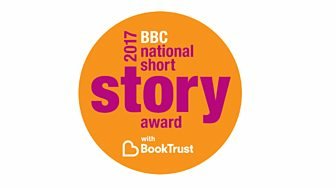
This post is part of a series on the 2017 BBC National Short Story Award.
Today, I’m delighted to be hosting a Q&A with one of the authors shortlisted for the NSSA, Will Eaves. (Read my review of his story ‘Murmur’ here.)
How does it feel to have been shortlisted for the BBC National Short Story Award 2017?
It’s an honour, of course. I like in particular the NSSA’s relationship with radio, which is an intimate medium. A radio voice speaks to listeners one by one, in their rooms, in their cars, in the bath. One hears that voice with a dramatic sense of others caught in the act of listening.
Can you give us a bit of background information to your shortlisted story? What inspired you to write it?
It’s a story that comes at the beginning of something longer – a chain of linked stories about a scientist struggling to maintain physical and emotional equilibrium in the wake of his conviction for Gross Indecency. Alan Turing is an obvious inspiration; but equally clearly the story spins away – far away – from his recorded circumstances. “Murmur” and its companion pieces are collectively a fantasia on the life of the mind, logical paradox, loyalty, and love.
The unique element of the BBC NSSA is that your story will be read by an actor and broadcast to Radio 4 listeners. Have you thought about what your characters’ voices might sound like, or do you have a particular voice in your head?
The speaker is a man in his forties. His voice might have an edge; he’s sharp but not severe; careful; quick to notice things, sad; occasionally vexed, not short-tempered.
What do you enjoy most about writing in the short story form, as opposed to longer-form or novels?
I’ve submitted to the NSSA before, always in the knowledge that I don’t write conventional short-form fiction. (I have a high regard for those who do: see reading suggestions below.) The truth is that I’m never sure what form I’m writing in. One has some idea of the material, the scale and shape, but these are rather different things. I’m not the sort of person who decides to write a poem or a novel or a story. The whole process is extremely uncertain. I tend to follow the voice. Form and content must grow together.
Which short story or collection by another author would you recommend to readers and why?
“Regret” by Guy de Maupassant. An old man confronts the woman he has always loved – the wife of a friend. Would she indeed have given herself to him, that sunny day years ago when they walked together by the riverside after lunch? A masterpiece of concision and tension, the whole story is strung upon the agony of a simple, devastating “what if?”
Also: “Millennium Blues” by Helen Simpson, from Hey Yeah Right Get A Life – an unimprovably great title that her US publisher wanted to change to: Getting A Life.
Which short story writer would you recommend to readers and why?
Flaubert (Trois Contes, and “Herodias”, in particular), Maupassant, Chekhov. Among contemporaries: Alice Munro, for her handling of time, and brilliant voicing. The thought and the said run together effortlessly. Her best collection is probably Hateship, Friendship, Loveship, Courtship, Marriage (2001), but they are all good.
What are you reading at the moment?
A Distant Mirror: The Calamitous Fourteenth Century, by Barbara W. Tuchman. A historian friend introduced me to this. It’s a vivid commentary on the Black Death, the Hundred Years War, the Papal Schism, and the economic and tactical disaster of chivalric combat. You can only read a few pages at a time because the violence and suffering are so disgusting.
What was your favourite book as a child?
I’m not sure. It changed from week to week, I think. My first great emotional experience was reading Charlotte’s Web by E.B. White, late into the night, under my covers, and feeling distraught. I cried myself to sleep – I’ve loved spiders ever since. I liked Conan Doyle and Saki as a young teen (“Tobermory”), and still do. Then Persuasion and Jane Austen. As an uncertain gay adolescent, I found Graham Chapman’s A Liar’s Autobiography uplifting, and very funny.
Was there one writer that inspired you to start writing?
No, because I didn’t think very much about who had written what. I liked reading on my own and the feeling of liberation and retreat that came with scribbling in exercise books. Music was as important to me as literature when I was growing up, and songs and piano and 60s/70s R&B and funk (Aretha Franklin and Stevie Wonder) still matter. Musical composition makes sense to me. When I started acting, I found myself drawn to Shakespeare’s late plays (The Tempest, The Winter’s Tale) for the transformations and magic. I’ve never set out to write anything in a particular style, although I do absorb the work of other writers and think about it over a long period of time. That’s essential. I try to notice and remember solutions to different technical problems. There’s a chapter in Beryl Bainbridge’s Injury Time (the whole book is lovely) that taught me how to move from one centre of consciousness to another. She makes it look so easy. Dickens helps one to be brave about changes in register and address.
Will Eaves was born in Bath in 1967 and educated at Beechen Cliff Comprehensive and King’s College, Cambridge. He worked for twenty years as a journalist and was the Arts Editor of the Times Literary Supplement from 1995 to 2011. He teaches in the Writing Programme at the University of Warwick. He is the author of four novels: The Oversight (Picador, 2001; shortlisted for the Whitbread – now Costa – First Novel Award), Nothing To Be Afraid Of (Picador, 2005; shortlisted for the Encore Award), This Is Paradise (Picador, 2012), and The Absent Therapist (CB Editions, 2014; shortlisted for the Goldsmiths Prize); and two collections of poetry: Sound Houses (Carcanet, 2011) and The Inevitable Gift Shop (CB Editions, 2016; shortlisted for the Ted Hughes Award for New Work in Poetry). He lives in Brixton, London.
Like this:
Like Loading...
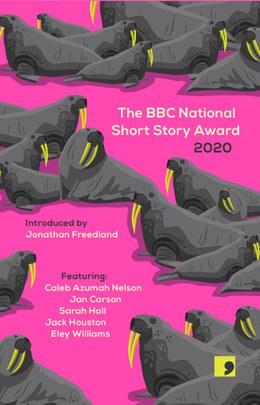
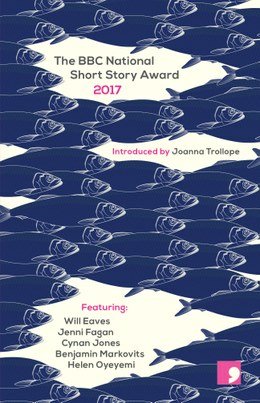

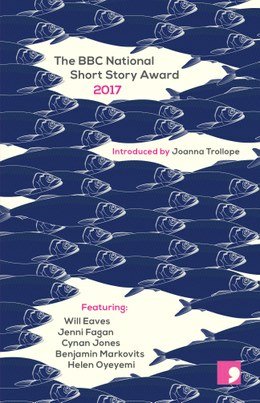

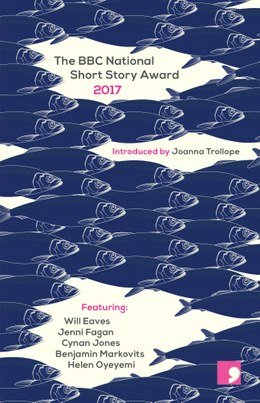
Recent Comments